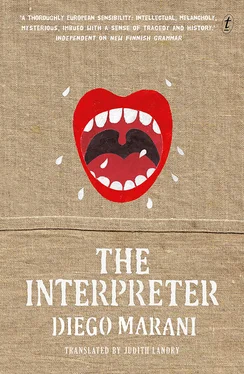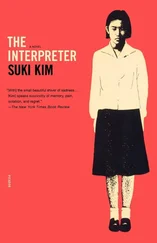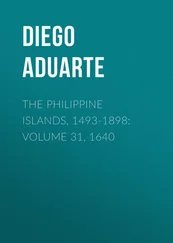After these sessions, I would spend many hours in total solitude, and this too did me good. The solitude I experienced in Dr Barnung’s clinic was of a completely new kind. No longer was I wandering down dark galleries which I feared to explore; now I was borne through light-filled halls in which I found traces of an earlier consciousness. I visited rooms furnished for all the Felix Bellamys who had never elbowed their way into existence, but whom I carried within me, unformed, irresolute. I sank into visions not my own, which yet belonged to me, with a familiar aura to them; I rediscovered pains experienced and never completely dulled, a secret birthright of lives unfulfilled. In a word, in Dr Barnung’s language clinic I felt myself happily unwell, assured of total recovery. Glimpses of a new identity were opening up before me, burgeoning in secret in the furthest recesses of my mind; thanks to Romanian, it was becoming less shadowy, brushing gently up against my mind. The doctor warned me that I must be certain of having reached its furthest roots before I tried to eradicate it. But I could also choose to let it take my place, I could pour myself into it through the channel opened up by the Romanian language. After two months I was actively speaking the language of the unknown Felix Bellamy who was reawakening within me, and a shiver of fear and excitement ran through me when I thought of the day when I would have to choose which of the two to be.
My life in the clinic slipped by almost imperceptibly, my anxieties pleasantly blunted by a serenity whose origins were all too clear to me, and which did not in the least surprise me. Everything in that place was the fruit of some form of artifice, of some complex intellectual fabrication; I too felt myself to be a concocted being, devoting myself to my illness as to some vice which I had learned to cultivate with skill, and from which I could derive the greatest pleasure, while fully aware that I was proceeding down a path of creeping addiction, although to what I could not say — perhaps simply to the architecture of the place, so secluded, so much itself, more fitted to housing the members of some orgiastic sect than a community of sufferers, or perhaps to the intriguing company of such weird people, prey to irrational machinations, morbidly devoted to their sufferings, flaunting their traumas, however horrible, with pride. Magnetic and awesome as he was, Dr Barnung himself held a secret attraction for me; indeed, his very presence in the common room after supper filled all of us with excited alarm. He rarely visited the various therapy departments, and his appearance always caused something of a stir; one section would compete against another, talking up his visits, obsessed by interpreting their meaning. Fridays were particularly tense, because hypnosis sessions were held on Saturdays, and the doctor would pass among his patients with an air of gravity, like a priest among his acolytes, as though calling for concentration, dedication, a deep, sincere commitment to his healing powers. We acclaimed him wordlessly — all that we did was buzz with sheer excitement, clustering around him as he passed, expressing our mute submission. We were putting ourselves in his hands, giving ourselves over to his arcane knowledge, not in order that he might cure us, but so that he might help us to preserve, intact, the illnesses that he himself had entrusted to us. Delicate and fragile as rare plants, they grew within us, sucking away at our will; we did not yet know it, but gradually they would take on our features, replace us, and it would be we who would disappear, as unexpectedly as the burning of a fever, a tightness in the chest, a passing twinge.
Over those first weeks, I came to understand that illness makes people more corporeal; I felt myself to be all body, and looking at myself in the mirror, beneath the transparent film of my epidermis, I felt I could see my organs functioning — swollen glands, purplish in colour, hard bulbs, pockets containing something granular, unpleasant to the touch, veins turgid with dark juices — everything in me was visible. In the grid of my brain I could even follow the intricate course of my thoughts, their rapid flicker behind my eyes, brief flashes partially obscured by my brainpan.
Ortega had been right — Colonel Kwiatkowski was extremely warm-hearted, although eccentric. He took a shine to me and would ask me to join him after supper for a game of chess, although that was just a blind — what he really wanted to do was talk.
‘Believe you me, Mr Bellamy, you don’t come here to be cured, but to wallow in your illness. Languages are not a cure, they are a drug! I knew a patient who was doing preparatory Russian, a green uniform, in a word, who learned five languages for no reason at all, and none of them Slavic! No, he learned Italian, German, Danish, Greek and English. Doctor Barnung had diagnosed maniacal psychosis, to be cured with an intensive course of Italian, with German as a support language, as usual. After having learned Italian to perfection, he could have been discharged, but he asked Barnung for a few sessions in Greek: to strengthen the basis of his Italian, he said. The others followed, and over time the cure became a drug. I myself haven’t heard from him for months, but in the gym they’re saying that he’s managed to wangle himself an isolation course in Japanese! Clearly, a man like that is not interested in a cure!’
I listened to Kwiatkowski’s stories in fascination and amusement, even when Ortega was standing behind him, shaking his head with a mournful smile. One evening the colonel suggested a stroll in the courtyard. To get rid of Ortega, he had involved him in a game of cards but had then slipped away, leaving his place to Vidmajer. It had just stopped raining; a cool breeze was blowing, scented with leaves, and Kwiatkowski’s few hairs were rippling over his head, making him look even odder than ever; he walked with his usual martial bearing, his hands clasped behind his back, his chin thrust forwards. As soon as we were alone, though, in the crystalline evening light, he gave me an agitated look, his face a tissue of wrinkles in the glow of the torches.
‘Mr Bellamy, do you want to know how to drive Doctor Barnung mad? It’ll take you a few weeks to learn the trick, but it’s well worth it!’ he whispered, the ghost of a snigger playing across his face.
I looked more closely at his mocking expression, moving nearer to him so that I could hear what he was saying.
‘Take this — it’s a tape in Esperanto,’ he whispered, dropping a package done up with an elastic band into my tunic pocket.
‘Listen to it every night before going to bed, for at least a fortnight, or until you’ve learned it by heart. When Doctor Barnung calls you to his study for the hypnosis session, repeat the beginning of the tape to yourself. There’s a good chance that instead of answering his questions during the trance, what you’ll come out with is the contents of this tape — you’ll be able to tell by his face when you come round. Nothing irritates Barnung more than Esperanto; it upsets all his theories! Esperanto doesn’t deal in the unconscious, it doesn’t do identity. So there’s nothing to cure! The moment there’s no language, there’s no mother, and those who don’t know their mothers owe nothing to anyone. We’d all be happy if we spoke Esperanto: like stones, or flowers. We’d be freed of our mad desire to be different from one another, we wouldn’t feel obliged to remember things; we wouldn’t feel we had to change, to go along with the vile blackmailing of time! Imagine that!’
Naturally, I paid him no attention, but I was amused by the imaginative way in which his spirit of rebellion showed itself; his illness had become so slyly camouflaged as to become unassailable, defying Dr Barnung’s most unforgiving forms of cure, making light even of an intensive course in Seroa.
Читать дальше












